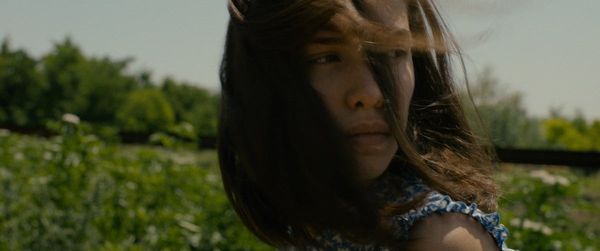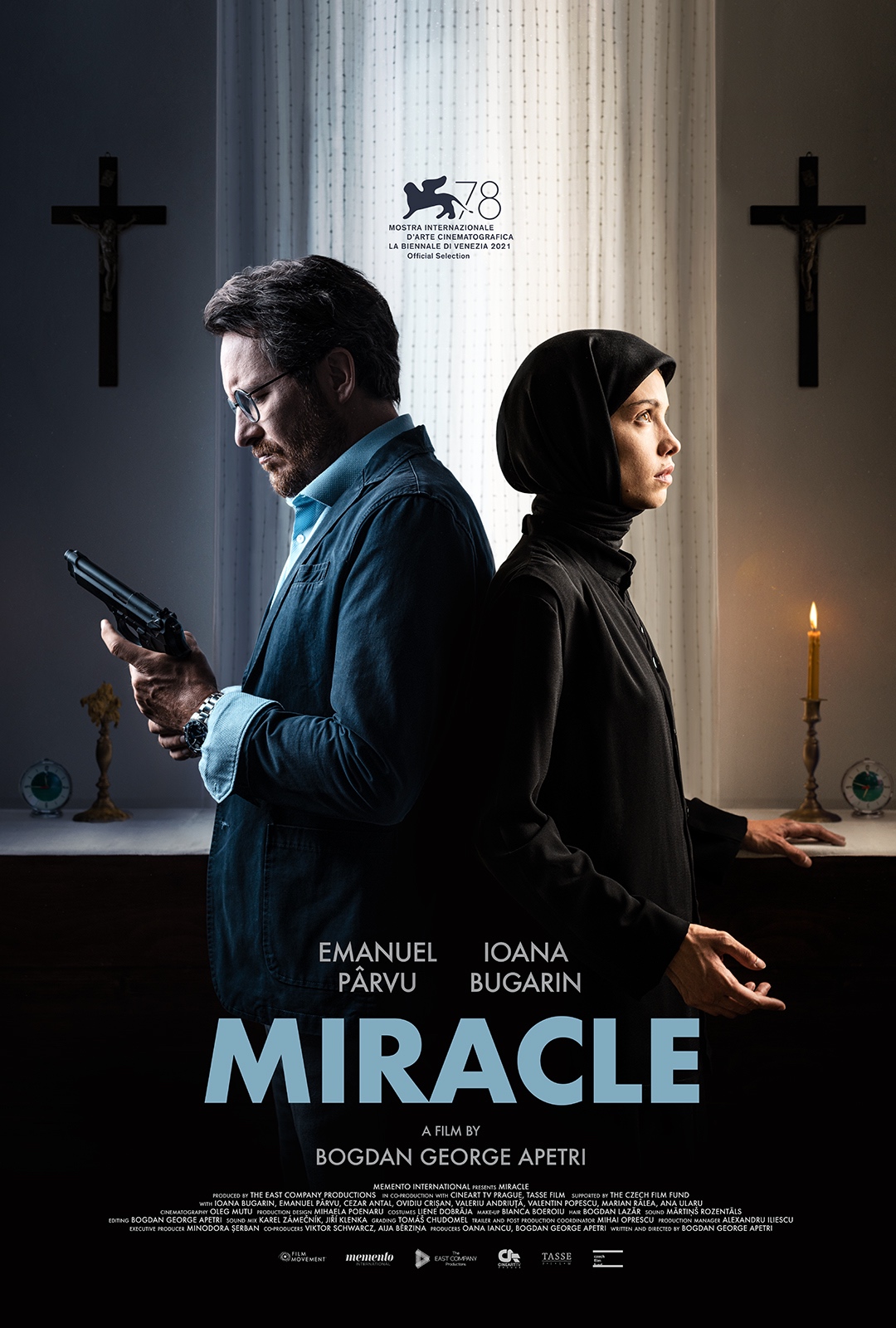Eye For Film >> Movies >> Miracle (2021) Film Review
Miracle
Reviewed by: Jennie Kermode

Sheep wander freely through the mostly rural setting of Bogdan George Apetri’s finely crafted psychological thriller. Cognitively stunted by selective breeding, they are typically characterised as unimaginative, disinclined to process what’s going on around them, yet here they see everything, like God watching over His flock in the form of a lamb. It’s a film very much concerned with moral reckoning and danger to the soul, though without, at any stage, really depending on investment in religion.
Ioana Bugarin is Cristina, a young novice whom we see depart from a convent one day to get a ride to a hospital in the city. It isn’t hard to figure out why a 19-year-old might be making such a surreptitious journey, why she might want to change into civilian clothes en route or why she might want to see a very particular doctor. Through this and her subsequent activities in the city, we stay close to her, getting to know her not through words – she expresses practically nothing directly – but through her face and body, as she struggles to bear up under an emotional weight too great for one of her slender years. Whatever one might think of her decisions – which we won’t understand in full until much later – it is impossible not to feel for her.

Cristina never makes it home.
The second half of the film is carried by Emanuel Parvu as Detective Inspector Preda, the police officer in charge of the investigation into what has befallen her. “Thou shalt not bear false witness,” he recites when faced with a reluctant young nun who doesn’t want to betray her friend, but perhaps he is talking to himself. Like everyone we meet here, he has a secret. Unable to have the conversations that matter, he becomes increasingly erratic in his behaviour, worrying his colleagues. Is he on the verge of doing something terrible or might he, by a miracle, find a path to redemption?
There’s a lot of subtext here about male guilt and the ways in which both men and women endeavour to manage boundaries which maintain civilised behaviour. A colleague of Preda’s reveals that he’s thinking about marrying his girlfriend because he wants to become a father again, and Preda is horrified because of his age, but the film’s other observations about fatherhood highlight the frequent difference between ideals and lived realities. Cristina, meanwhile, takes on a saintly cast, but that doesn’t seem to reflect how she perceives herself, and it raises questions about how the male characters frame their understandings of her in order to justify their own choices. Far from being yet another film in which a woman’s suffering provides the impetus for a man’s actions, Miracle presents a story in which Cristina’s presence looms large throughout and she never completely seems to lose her agency.
With impressive cinematography at every stage, the film hinges on two magnificent slow, circular sequences, one in the middle and one at the end, each of which resets the narrative. They’re directed with incredible precision, almost flawless, whilst packing in a wealth of incident and meaning. By distinguishing these moments visually, Apetri lifts us out of the day to day into a space which is psychologically more volatile, a space in which impulsive actions can have world-shattering effects. It is no accident that both take place outdoors, in a less controlled space which contrasts with the narrow, tightly regulated spaces of the convent, the hospital or even the city streets. In the fields, under the gaze of the quietly gazing sheep, men must learn to master their own natures, or else risk destroying others and themselves.
From the very outset, this film is fraught with tension. Apetri builds it up slowly, skilfully, never overplaying his hand. It is only in the last few moments that viewers will feel able to breathe freely. At odds with the traditional structure of morality plays, Miracle suggests that there is something divine about the discovery of free will.
Reviewed on: 31 May 2022















